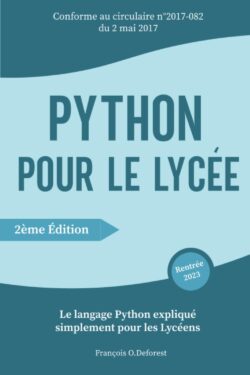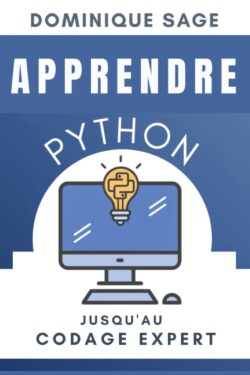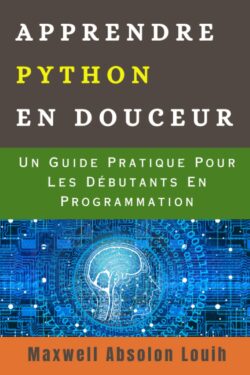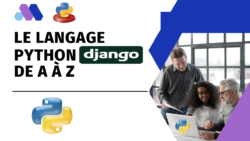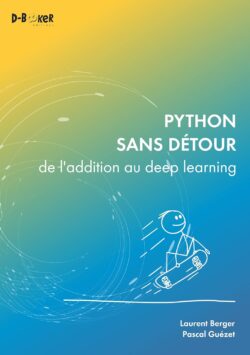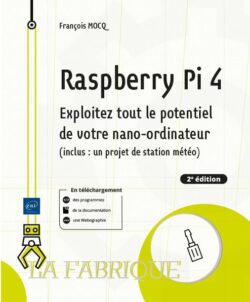€ 34,00
- Éditeur : CreateSpace Independent Publishing Platform; 1er édition (7 septembre 2013)
- Langue : Anglais
- Broché : 244 pages
- ISBN-10 : 1492346136
- ISBN-13 : 978-1492346135
- Poids de l’article : 440 g
- Dimensions : 18.9 x 1.4 x 24.61 cm
Description
Introduction to Python for Biologists
"Python for Biologists" is a comprehensive programming course designed specifically for beginners in the biological sciences. Authored by Dr. Martin Jones and published on September 7, 2013, this book equips readers with the necessary skills to address common biological and bioinformatics challenges through programming.
The Importance of Learning Programming
Understanding programming is increasingly recognized as essential in various fields, including biology and bioinformatics. Whether to streamline research processes, handle large datasets efficiently, or meet job requirements, learning programming, particularly Python, has become indispensable for professionals in these domains.
Table of Contents
The book is structured into nine chapters, each focusing on essential programming concepts and their application in biological contexts:
Introduction to Python for Biologists: An overview of why Python is suitable for biologists, along with guidance on installing Python and setting up the programming environment.
Text Manipulation: Techniques for manipulating text, including DNA and protein sequences, with exercises on calculating AT content and splicing introns.
Data Handling: Reading and writing data to and from files, dealing with file paths, and working with the FASTA file format.
Data Processing: Processing multiple data pieces within a single program and employing advanced tools for sequence manipulation.
Function Creation: Creating custom functions to enhance Python's utility, along with strategies for testing functions effectively.
Decision Making: Writing programs capable of making intelligent decisions based on complex rules, with exercises on filtering genes.
Regular Expressions: Introduction to regular expressions for pattern matching in text, useful for DNA and protein sequence analysis.
Data Storage: Storing large datasets efficiently, simplifying code from previous chapters, with exercises on translating DNA sequences to proteins.
Integration and Optimization: Integrating Python programs with existing tools, refining programs for wider usage, and exercises on counting k-mers and binning DNA sequences by length.
About the Author
Dr. Martin Jones, the author of "Python for Biologists," boasts over five years of experience teaching biologists software development skills. His expertise spans from postgraduates to principal investigators, and he currently serves as a Lecturer in Bioinformatics at Edinburgh University.
Conclusion
"Python for Biologists" serves as an invaluable resource for individuals seeking to bridge the gap between biology and programming. Through practical exercises and real-world examples tailored to biological applications, readers gain a solid foundation in Python programming, empowering them to tackle research challenges and advance their careers in the biological sciences.


